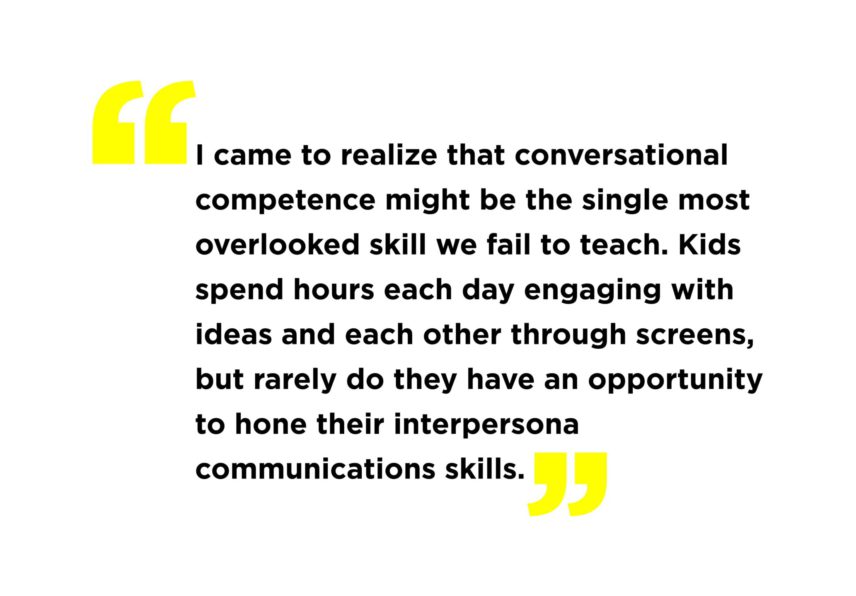How often do we go through people listening to hundreds of stories on a daily basis and passing by many conversations without truly absorbing what is being said? Today, in the advent of social media, vlogging and podcasting, we get used to just absorbing conversations on the go. Very rarely do we practice our muscle in communicating effectively by being able to stir up conversations that are fruitful.
Writer and radio host Celeste Headlee took the stage to share how people can become better at conversations in her TedTalk.
Headlee goes on to talk about how polarized we all are now because we live in a world of constant conversations that usually do not go well. For instance, we have people argue over politics, social media, relationships, values and so on and so forth. She quotes a high school teacher names Paul Barnwell saying:

Headlee suggests that people can have great conversations, they just don’t know how. They are taught how to pay attention, but not how to listen and administer themselves during said conversations.
Here are the 10 ways you can be a better conversationalist according to Headlee:

Don’t multitask.
Be present. Be in that moment. Don’t think about anything else such as an argument that had elapsed hours ago or what you plan to eat for lunch. If you want to get out of the conversation, then get out of the conversation, but don’t be half-baked.

Don’t pontificate.
You need to enter every conversation assuming that you have something to learn. Everybody is an expert in something. Learn something from them.

Use open-ended questions.
Start your questions with who, what, when, where, why or how. If I ask you, “Were you terrified?” you’re going to respond either “Yes, I was” or “No, I wasn’t.” “Were you angry?” “Yes, I was very angry.” Instead, try asking them things like, “What was that like?” “How did that feel?” Because then they might have to stop for a moment and think about it, and you are going to get a much more interesting response.

Go with the flow.
That means thoughts will come into your mind and you need to let them go out of your mind. Allow the conversation to lead you to different questions and tangents and work from there.

If you don’t know, say that you don’t know.
Now, people on the radio, especially on NPR, are much more aware that they’re going on the record, and so they’re more careful about what they claim to be an expert in and what they claim to know for sure. Do the same thing.

Don’t equate your experience with theirs.
If they’re talking about having lost a family member, don’t start talking about the time you lost a family member. If they’re talking about the trouble they’re having at work, don’t tell them about how much you hate your job. It’s not the same. It is never the same. All experiences are individual. And, more importantly, it is not about you.

Try not to repeat yourself.
It’s condescending, and it’s really boring, and we tend to do it a lot. Especially in work conversations or in conversations with our kids, we have a point to make, so we just keep rephrasing it over and over. Don’t do that.

Stay out of the weeds.
Frankly, people don’t care about the years, the names, the dates, all those details that you’re struggling to come up with in your mind. They don’t care. What they care about is you. They care about what you’re like, what you have in common. So forget the details. Leave them out.

Listen.
I cannot tell you how many important people have said that listening is perhaps the most, the number one most important skill that you could develop. Buddha said, and I’m paraphrasing, “If your mouth is open, you’re not learning.” And Calvin Coolidge said, “No man ever listened his way out of a job.”

Be brief.
This month, Rocket Station’s theme is about self-development because our team believes that we are all aiming for a better understanding of ourselves and finding ways to make ourselves better. To read more articles like this, feel free to sign up and receive the latest updates straight to your mailbox.
RELATED STORIES



SHARE
POST A COMMENT


